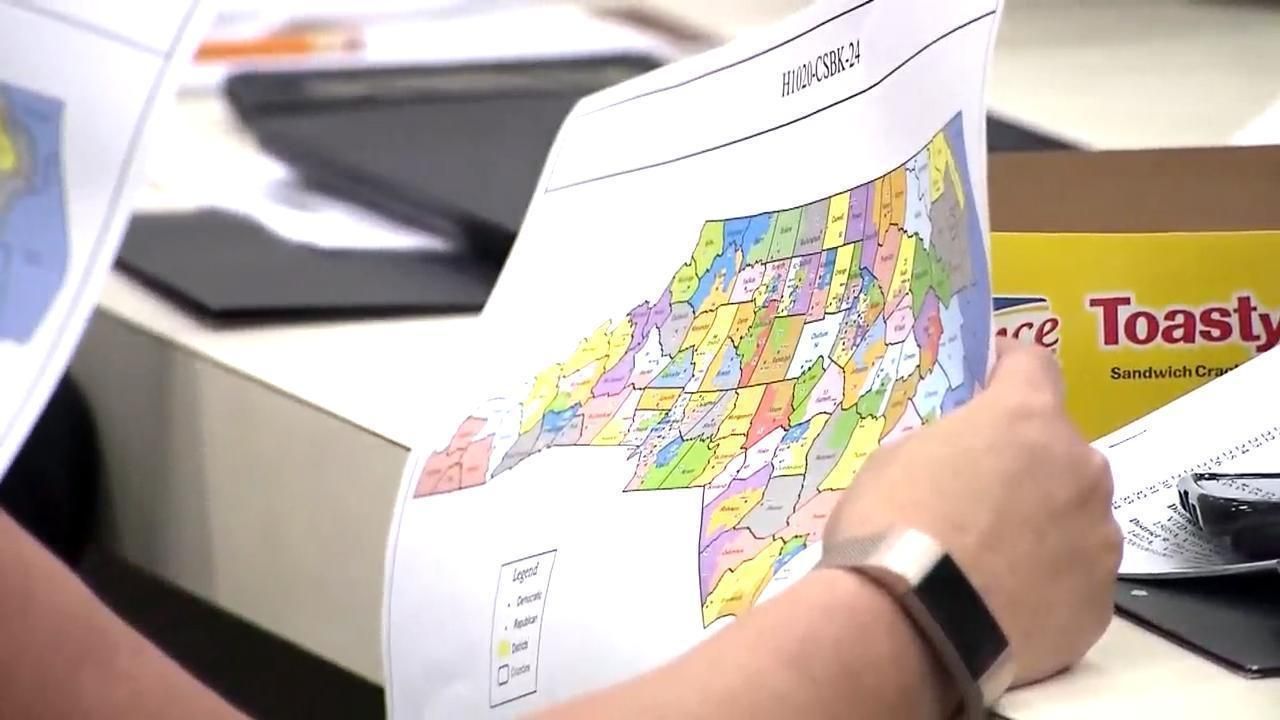NC governor, attorney general, call on state Supreme Court to throw out gerrymandered maps

Gov. Roy Cooper and Attorney General Josh Stein weighed in again on North Carolina’s ongoing redistricting fight Friday, calling on the state Supreme Court to overturn voting maps drawn by the legislature’s Republican majority.
In a court filing, they asked the high court to keep a firm hand on the process should those maps need to be redrawn and to further delay the state’s primary elections if needed. They also suggested bringing in an expert to draw new maps if the GOP majority fails to heed the court’s advice in creating new districts.
The filing from the state’s top two Democrats is part of a fast-tracked package of redistricting lawsuits coming before the state Supreme Court for oral arguments Feb. 2. Voter rights groups are challenging the maps, saying they were unfairly drawn to favor the GOP.
A three-judge panel from a lower court said this month that the maps were partisan gerrymanders, intended to increase Republican political power in Congress and the General Assembly. But the panel also said the courts can’t do anything about it because the state constitution doesn’t forbid the practice, and the judiciary can’t stop a redistricting process the constitution delegates to the General Assembly.
Cooper and Stein said the panel took too narrow a view of the law and called the judges’ decision “deeply flawed.” Among other things, the governor and attorney general quoted from a piece that N.C. Supreme Court Chief Justice Paul Newby co-authored in 2013, saying the state constitution calls on generations to “rethink for themselves the implications of the fundamental principles of self-government.”
“Our constitution is premised on the principle that all political power is ‘derived from the people’ and ‘founded upon their will only,’ ” Cooper and Stein said in their amicus brief. “When districts are drawn to further the interests of one party, however, power does not derive from the people, but rather from incumbent legislators who need not be responsive to the will of the people.”
An amicus brief is a legal filing from someone not involved in a case, but who wishes to advise the judges.
Spokespeople for GOP lawmakers didn’t immediately respond Friday evening to a request for comment on the brief, but the Republican legal team has said repeatedly that the districts lawmakers drew are fair and constitutional.
“If there's any threat to democracy here, it's the plaintiff’s theories,” attorney Phil Strach said in closing arguments before the three-judge panel.
“At bottom, the plaintiffs have failed to answer the key question that vexes all courts struggling with partisan gerrymandering claims,” Strach said. “What is the line between permissible and impermissible partisan considerations when drawing a map? The fact is that is an unanswerable question, unless the courts try to answer it with brute force alone.”
Cooper and Stein also asked the court to speed any redraw it orders by announcing a decision before releasing a final written opinion in the case. They said the court can delay primaries – already postponed by the court from March to May – to make time for a redraw. Republican lawmakers already voted this week to delay those primaries to June, but legislative Democrats voted against the measure, and Cooper may veto it.
Cooper and Stein acknowledged that state law says the General Assembly must get 14 days to accomplish a court-ordered redraw, but they urged the high court to “provide clear guidance” for that redraw and suggested specific metrics the court could impose.
They also said the court could bring in an expert, called a special master in this sort of proceeding, to create comparison maps, then use some of those maps if the General Assembly’s second attempt doesn’t pass muster. Cooper and Stein also called on the court not to limit usage of redrawn maps to just the 2022 elections.
That’s what state law says should happen, which would give the legislature a chance to draw new maps after this cycle for use the rest of this decade. But Cooper and Stein argued that the legislature “lacks authority to place limits on this court’s power to remedy constitutional violations,” so the law can be overruled.
“This Court is the people’s only hope,” they wrote.
A number of other amicus briefs calling on the court to throw out North Carolina’s maps were filed Friday, including briefs from the Buncombe County Board of Commissioners, the Campaign Legal Center and several former governors from around the country, including North Carolina’s Mike Easley and California’s Arnold Schwarzenegger.
The case is Harper v. Hall, and the case file is online here.









